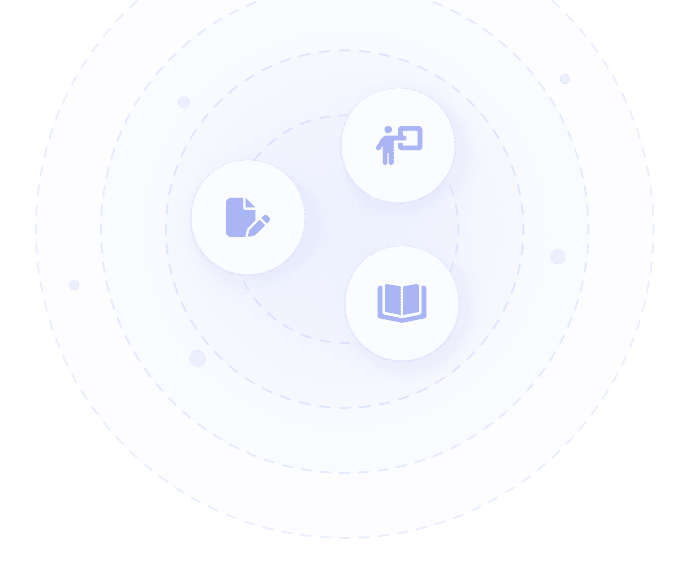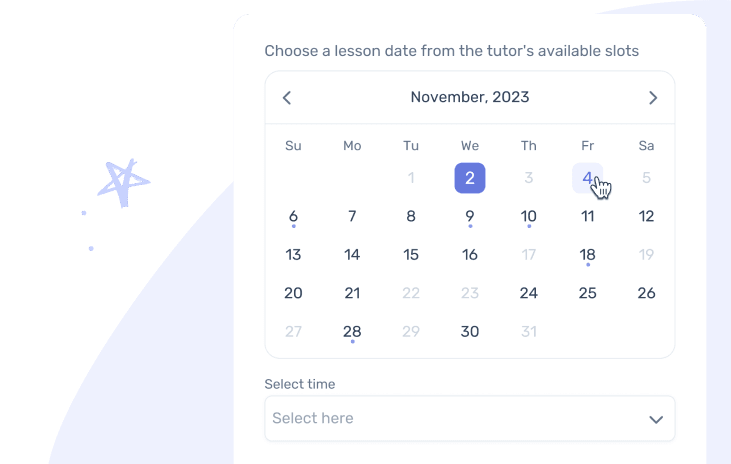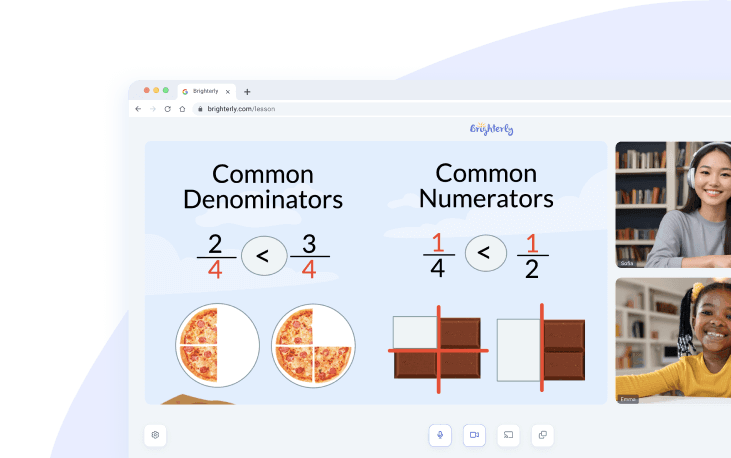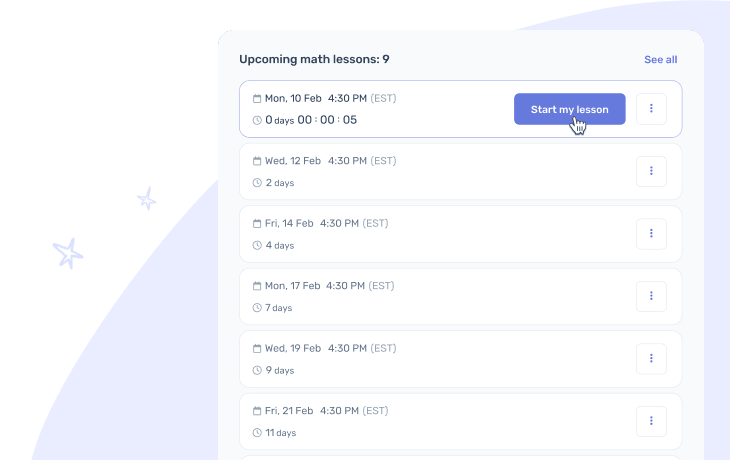Top math tutors in Los Angeles by Brighterly
Meet our top teachers! Each of our math tutors from Los Angeles and other US cities is passionate about helping kids succeed in math (and other areas, too), improve their test scores, and build confidence in their skills. We work with tutors who truly love what they do and have a strong professional background.

Maria Teresa Montoya
Math tutor and author at Brighterly
Certified math tutor in Los Angeles with 5 years of experience

Rachelle Bencio Yu
Math tutor and author at Brighterly
Certified math tutor in Los Angeles, CA, with 15 years of experience

Cristina Mortel
Math tutor and author at Brighterly
Certified math tutor in Los Angeles, CA, with 3 years of experience
Choose 1:1 online math tutoring!
Improve your child’s math skills with a Brighterly Los Angeles math tutor.
Los Angeles math tutors cost from $17.3/lesson

How much does a private math tutor in Los Angeles cost?
The price of tutoring sessions on Brighterly’s platform varies based on the selected Learning Membership plan and the number of lessons per week. Choose the best option that fits your child’s needs and learning goals!

Brighterly’s math tutor (Los Angeles): main benefits of choosing
Brighterly’s private math tutor from Los Angeles can guide your elementary or middle schooler through any math challenges — from mastering basic operations like addition and subtraction to tackling more advanced subjects such as algebra and geometry.
Teaching students with a personalized math program
We offer a flexible program that adapts to each student's unique needs, strengths, and weaknesses. Our program is designed to put students at the center of their customized learning experiences, helping students overcome obstacles and build confidence while achieving their academic potential.
Professional elementary & middle school math tutoring in Los Angeles
Our tutors can help your child with understanding basic & complex math concepts and improve their academic performance. Brighterly tutors provide instructions personalized to your child’s learning style, helping them make sense of challenging topics like fractions and algebra.
Private math tutors in Los Angeles at the most affordable rates
Brighterly offers top-rated private math tutoring at the most affordable rates, ensuring high-quality, customized lessons with certified math tutors in Los Angeles and beyond. With every learning membership plan, you get 1-on-1 personalized lessons, detailed progress reports to track your child’s improvements, and the flexibility to keep unused lessons on balance.
Lessons with a Los Angeles math tutor that fit your child’s schedule
Our math tutors in Los Angeles offer fully flexible lesson times, allowing your child to learn at their own pace and convenience. Whether they have a packed schedule with school, extracurricular activities, or other commitments, they can still receive high-quality private online math tutoring classes at a time that works best for them.
How to start math learning with Los Angeles math tutors
Book your 1st free lesson




